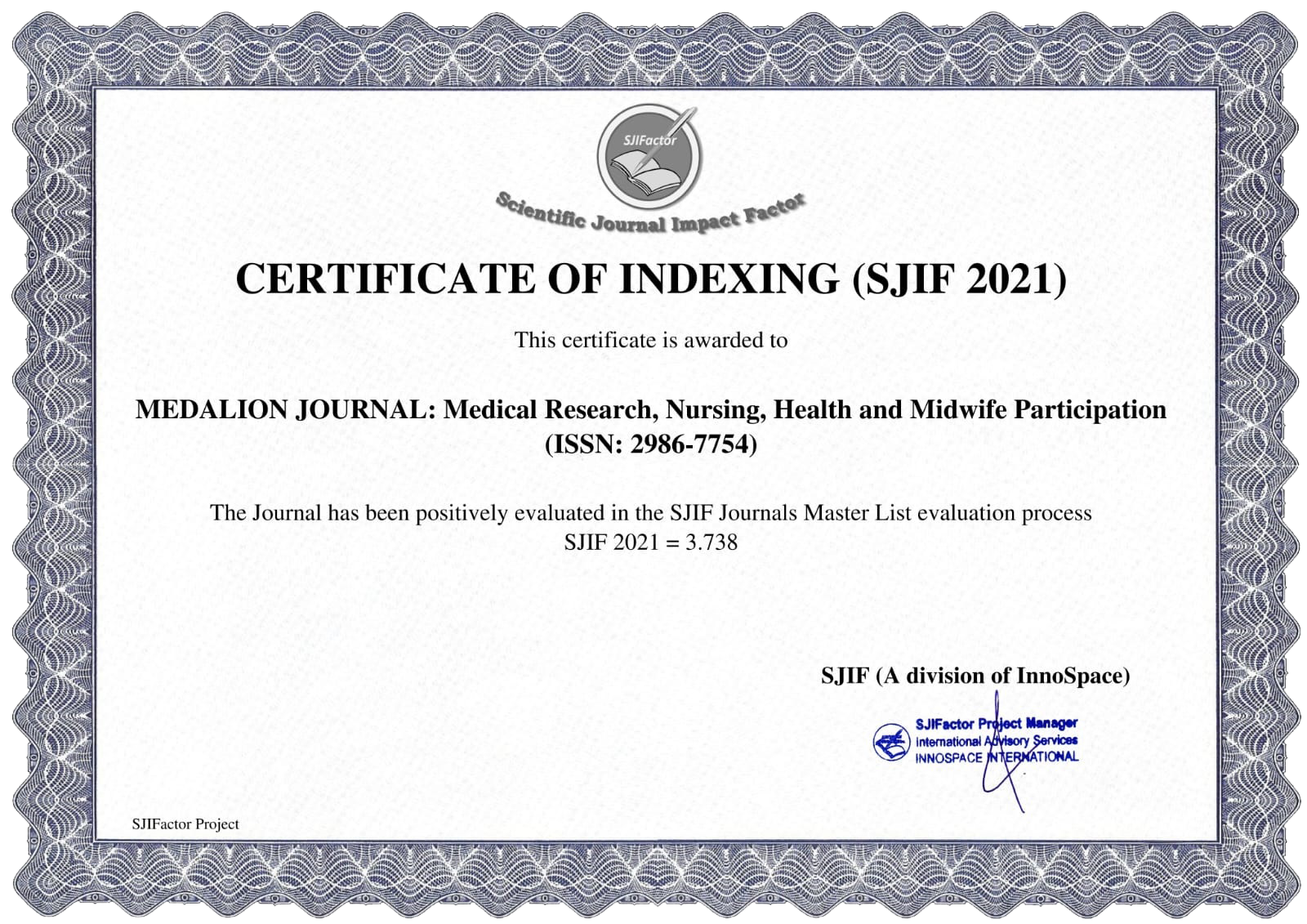FACTORS AFFECTING MOTHERS ON BASIC IMMUNIZATION STATUS IN INFANTS AGED 12-24 MONTHS IN BARINGIN RAYA VILLAGE WORKING AREA OF PAMATANG RAYA PUSKESMAS DISTRICT
Main Article Content
Riada Mareny
The decline in the Infant Mortality Rate (IMR) in recent times illustrates an increase in the quality of life and public health services. The decrease in IMR was partly due to an increase in the coverage of infant immunization, an increase in the coverage of deliveries by health personnel, the placement of midwives in villages and an increase in the proportion of mothers with higher education. According to Ibrahim (2006) said that if basic immunization is carried out in a complete and regular manner, then immunization can reduce the morbidity and mortality of children under five by around 80-95%. Regular means adhering to the immunization schedule and frequency while complete basic immunization is having received all types of basic immunization when the child was less than 11 months old. The purpose of this study was to determine the factors that influence the mother's basic immunization status in infants aged 12-24 months in Baringin Raya Village, Working Area of the Pamatang Raya Health Center, Simalungun Regency, in 2016. The research method was carried out quantitatively with a descriptive correlation design with a cross approach. sectional. The subjects of this study were mothers who had babies aged 12-24 months who were recorded in the Baringin Raya Village in the working area of the Pamatang Raya Health Center, as many as 40 respondents. The sampling technique for the mother group was using purposive sampling. Statistical analysis used the chi-sguare test. Statistical results show that there is a relationship between age (p value = 0.001, OR=0.008), education (p value=0.004, OR=7.286), occupation (p=0.001, OR=0.086), number of living children (p value=0.000, OR=0, 014) and knowledge (p=0.00, OR=0.014). It is hoped that it will provide insight and knowledge about the importance of basic immunization in infants.









